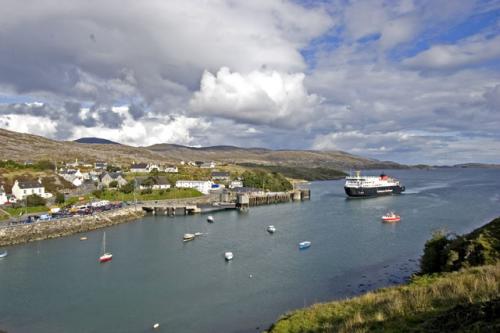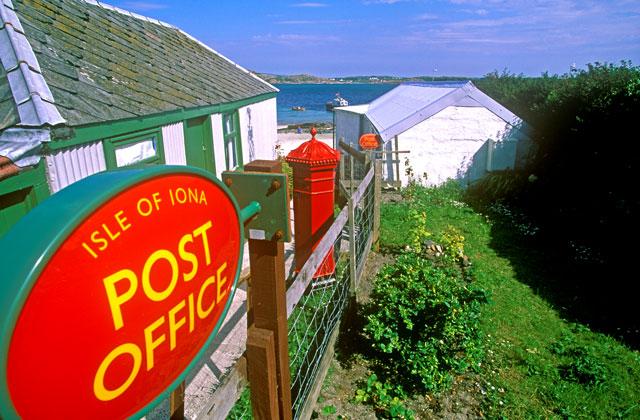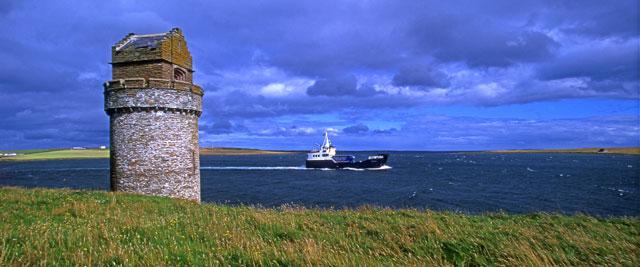The Islands (Scotland) Act 2018 introduced several measures to ensure that there is a sustained focus across the Scottish Government and the public sector to meet the needs of island communities, now and in future. Data on small rural and island communities is often lacking, which provides challenges for the Scottish Government and Local Authorities to understand the specific challenges facing island communities and form effective policy measures to address them. This project identified key evidence gaps for Scotland’s island communities and to provide recommendations for how these could most appropriately and effectively be addressed. The full project report can be read here.

Stage
Directory of Expertise
Purpose
Following a campaign by the Scottish Islands (Our Islands, Our Future) that focused on ensuring the needs of island communities were taken into account, and the need to consider “island-proofing” future policies, the Island (Scotland) Act 2018 was unanimously passed through the Scottish Parliament.
The Bill required the Scottish Government to write a National Islands Plan (NIP) to set a long-term improvement strategy for the Islands. The NIP, with its 13 Strategic Objectives, was presented to the Scottish Parliament in early October 2019. Alongside the NIP will be an Implementation Strategy, which will contain a set of indicators for measuring progress against the Objectives. The NIP also imposes a duty on certain authorities to undertake Island Communities Impact Assessments (ICIAs) and preparatory work is ongoing to inform this process.
Good data is required about Scotland’s islands to inform the indicators, but the NIP acknowledges that there is currently a lack of appropriate, robust socio-economic data (particularly publishable data) at island and sub-island level. Data on small rural and island communities is often lacking for a number of reasons, including: a lack of awareness of data availability; a lack of skills relating to data access and analysis; poor, out-of-date websites which use unhelpful jargon and inaccessible language; data not collected at small enough geographical scale, masking of local diversity; an urban bias amongst researchers and policy-makers leading to rural and island communities/issues being overlooked and poorly understood; and finally, attending training events (usually in urban centres) is more expensive and time-consuming.
The purpose of this project was to provide information on evidence gaps in the islands of Scotland, identify where these gaps are and what their implications for island communities might be, and develop a set of recommendations for addressing them. These recommendations were “sense-checked” through a workshop (webinar) with key stakeholders.

Results
Information on evidence gaps and how they might be filled was collected through: a desk-based review of relevant information from Scotland and beyond; reviewing the reports from the island consultation events, which took place during summer 2019 to inform the writing of the Proposed National Islands Plan; an online survey asking people about current data availability, data gaps and how they might be filled; and a workshop session at the annual gathering of the Scottish Islands Federation on Grimsay in the Outer Hebrides in early October 2019.
The reports produce by Strathclyde University’s Centre for Environmental Law and Governance (SCELG), the SG Islands Team and Scotland’s Islands Federation, focused on the consultation events that took place on many of Scotland’s inhabited islands, as a requirement of the Islands (Scotland) Act 2018 and to inform the NIP, form the basis of the information of the report.
Although each of Scotland’s islands are unique, and there are significant differences between islands and island groups, it is possible to distill a core set of factors that make the islands a good place to live. These included: a strong sense of community spirit; high quality environment; a safe and peaceful environment and potential for renewable energy generation. The same applies in terms of the key challenges, whilst there are many different issues identified, there is a set of challenges common to (at least) several islands, such as: depopulation and a need to (sustainably) increase population levels; transport limitations; limited housing supply and unaffordable housing; limited economic base; high levels of fuel poverty and poor digital connectivity (amongst others). The three top issues from the reports, and the participants at the Grimsay workshop, that data was lacking were: Demographic change; Poverty, health and wellbeing; Community empowerment.
Other important issues that came from the reports and event in Grimsay include transport, housing, economic structure, natural environment/biodiversity, community facilities, digital connectivity. Information from the reports, meeting and online survey, two things were made clear - that two things were critically important: (i) having data over time; and (b) having data from different sources.

Building on the data presented in the project report, the project concludes with a set of eight recommendations, which are:
- Recommendation 1: Local capacity, skills, expertise, etc. need to be built, through a variety of different approaches (such as training, mentoring, etc.), to ensure that local people and community and voluntary sector groups are able to independently access, use, manipulate, analyse and present data appropriately and accurately.
- Recommendation 2: Increased collaborative working is required to ensure that the islands evidence base is improved, including between researchers, statisticians, policy-makers, practitioners, community groups, etc. It may be appropriate for one organisation to take overall responsibility for encouraging and maintaining such collaborative working, such as the Scottish Islands Federation.
- Recommendation 3: More and better data is required at local level in order to explore differences within islands, between island groups and between island and mainland locations. This may require ‘creative’ approaches to overcome (but not compromise) confidentiality and anonymity challenges. It may be worth considering the development of a new islands classification or typology, which may help to draw out the key similarities and differences between islands in order to inform policy approaches.
- Recommendation 4: Collation of information in one place about all the data currently available on Scotland’s islands would be useful, whether this be via a publicly accessible online portal or a more straightforward database. This would help to raise awareness of, and improve access to, the data that is available for all potential users.
- Recommendation 5: Online data sites and portals need to be accessible and user-friendly for a diverse set of users. Further work to identify good practice data web portals from elsewhere might be useful, as might testing of different approaches with a range of users to find out more about ‘what works best’. However, it must be acknowledged that using an online approach may not always been appropriate as many rural and island dwellers lack adequate broadband skills, speeds and reliability to be able to view and download (often even small quantities of) data.
- Recommendation 6: Recognising the validity and value of different kinds of data is important. While large-scale quantitative data can enable comparisons between places and the measurement of change over time, using data generated locally is often the only way to fully understand local lived experiences, contexts, histories, etc. Often this local data is less valued – or not valued at all – but there needs to be a shift in attitude to ensure that, where it is collected transparently and robustly, its value is recognised.
- Recommendation 7: Recognising the value of networking with islands and island organisations elsewhere in Europe and beyond is important. There are many island networks that already exist that Scotland’s islands could usefully tap into to share information and learning.
- Recommendation 8: Clear planning from the start regarding the data that is required on a particular issue or action is important, involving all stakeholders. This will help to ensure that appropriate data is available and accessed from the outset and throughout a project.
Benefits
The need for good islands data is arguably greater than ever with the general shift towards place-based policy in Scotland and, in particular, the passing of the Islands (Scotland) Act 2018, with its Proposed NIP and establishment of the ICIA process. Such place-based policies and legislation require a good underlying evidence base to, first, demonstrate the need for such tailored approaches, and then, second, to monitor and measure the impacts of such policies to ensure outcomes are being met, and if not, to inform decisions about how policies should be changed to ensure that they are.
The project conclusions and recommendations are well placed to inform thinking on the Implementation Strategy which will set out how the thirteen Strategic Objectives and 104 commitments in the NIP will be addressed. As the NIP itself observes, robust indicators and the meaningful monitoring of progress on outcomes for island communities require good data. This project has explored some ways in which such ‘good’ data on islands could be collected, analysed and made available.
Project Partners
Scottish Government Islands Team (SG Islands Team)